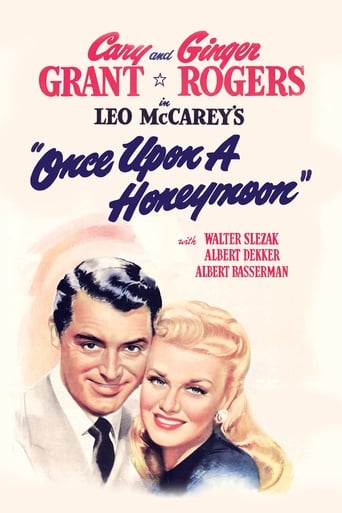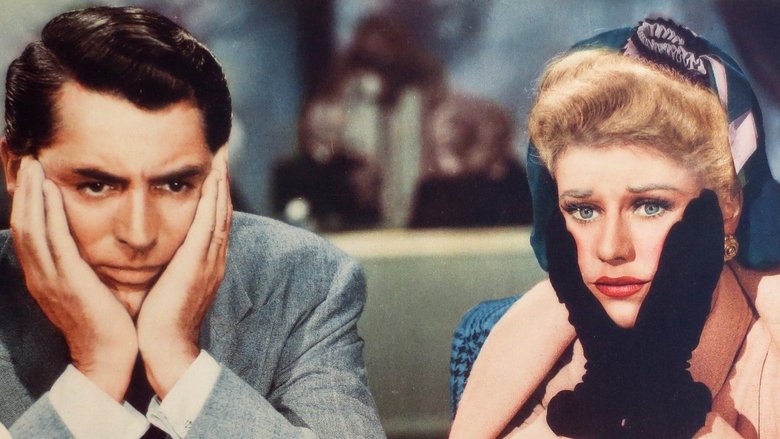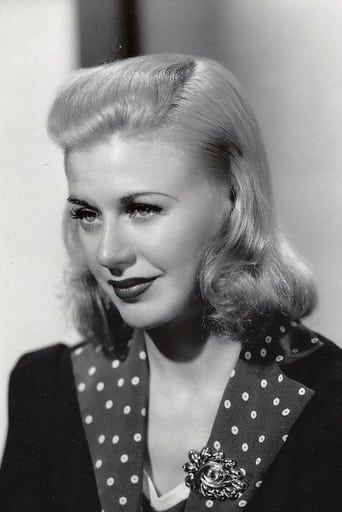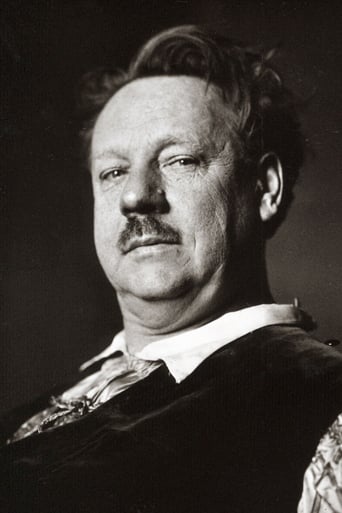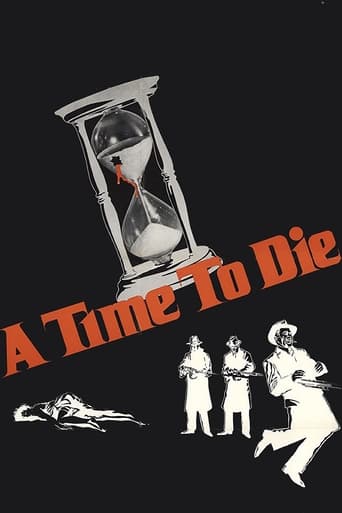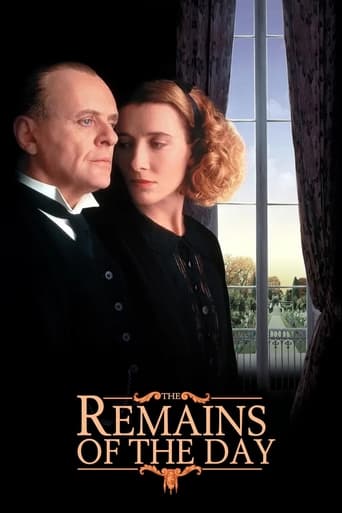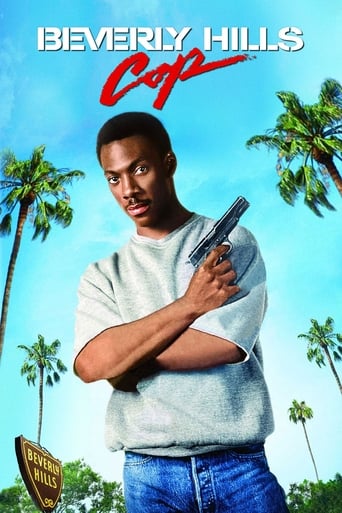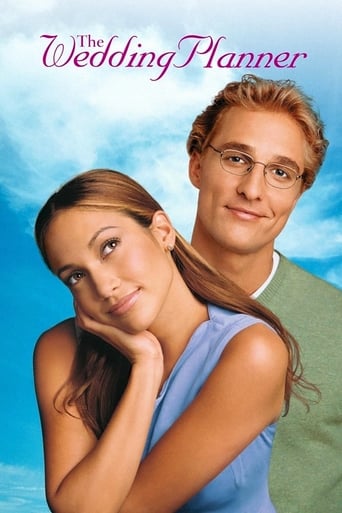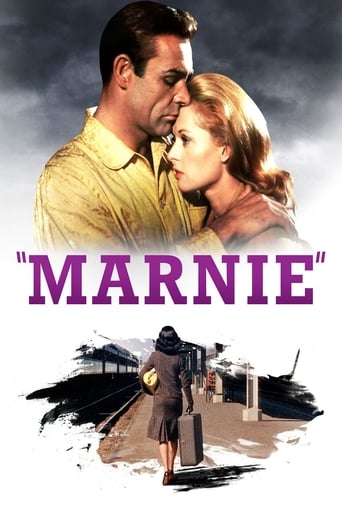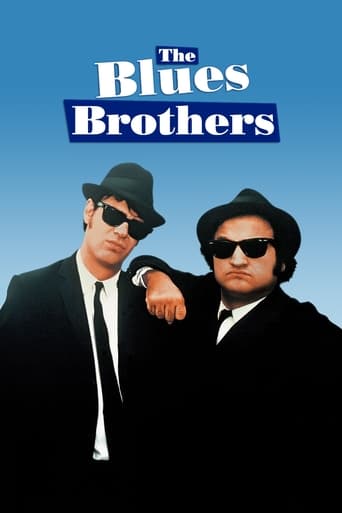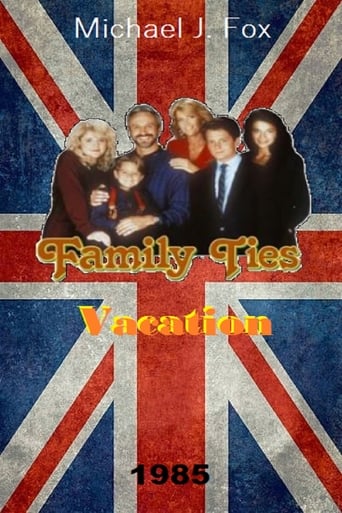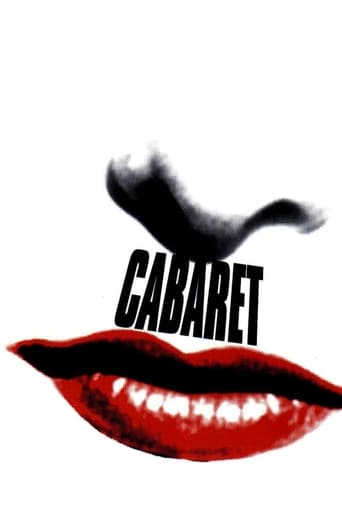Once Upon a Honeymoon (1942)
A radio correspondent tries to rescue a burlesque queen from her marriage to a Nazi official.
Watch Trailer
Cast


Similar titles
Reviews
Such a frustrating disappointment
I like movies that are aware of what they are selling... without [any] greater aspirations than to make people laugh and that's it.
The movie's neither hopeful in contrived ways, nor hopeless in different contrived ways. Somehow it manages to be wonderful
The film never slows down or bores, plunging from one harrowing sequence to the next.
Producer: Leo McCarey. A Leo McCarey Production. Copyright 4 November 1942 by RKO-Radio Pictures, Inc. New York opening at the Radio City Music Hall: 12 November 1942. U.S. release: 4 November 1942. Australian release: 5 August 1943. 10,661 feet. 118 minutes.SYNOPSIS: An ex-burlesque dancer from New York marries an Austrian baron on the eve of WW2. A newspaperman tries to put her wise to the fact that the baron, far from being the patriot he pretends to be, is actually a front man for Hitler.NOTES: Nominated for an Academy Award for Sound Recording, but lost to Yankee Doodle Dandy.COMMENT: An uneasy mixture of both romantic and slapstick comedy with a more serious spy melodrama. Unpopular with both audiences and critics in its day, it is still a difficult film to enjoy even today, though the problem now is not quite as much its disquieting mixture of styles (even a normally super-reliable player like Slezak seems at sea in at least one of his scenes) as the unnecessary verbosity of its script. Unfortunately the garrulousness of the dialogue continues unabated from the first scene to the last, making each individual scene not only irritatingly drawn out but next to impossible to trim. Nor is this incessant impetus to surround witty dialogue with word clusters of a more mundane variety, the only script problem. In its serious moments, the plot is utterly unbelievable. Unfortunately at these moments, humor is not intended. Even worse is the way the scriptwriters facilely resolve potentially intriguing plot situations. We have a bit of suspense for instance when Grant and Rogers are trapped on their way to a Jewish internment camp. How do they get out of this tricky situation? The American ambassador intervenes. And right at the climax, here's heavy Slezak threatening the slim Rogers as she stands alone on the top deck of a ship. So what happens. Off-camera she does an absolutely impossible thing. Poor Slezak has a hard time of it, though he does manage most of the movie with his usual menacing flair. Grant of course is Grant, full of silly giggles, foolish impersonations, cheeky bravura and patriotic gravity. Miss Rogers gives the film's best performance because her role is conceived on a more believable plane. Her facility with accents helps. And she's stunningly costumed too. The support players are effective, though aside from Dekker (who doesn't come in till near the end), Lytess (later to win fame as Marilyn Monroe's dramatic coach), Boros (who disappears after some lengthy introductory scenes) and Shannon, most including Basserman have very little to do.McCarey's directing style doesn't help smarten the sluggish pace. He has chosen to handle the movie in TV style with lots and lots of close-ups. A feast for Rogers and Grant fans no doubt but unhelpful to those of us who wish he'd get on with moving the story along. Fortunately he does exhibit some of the felicitous touches of The Awful Truth like the swastika hands of Hitler's clock and Grant's smiling face outside the carriage window. But his timing is generally too slow, he over-milks every scene for more humor than it's worth. Some clever remarks, like Grant's sly comment that he came after facts but all he got were figures, are usually lost in the chatter.Production values are impressive. A pity the script is so constructed that trimming is virtually impossible. It would be at least twice the fun at two-thirds the length.
Writer Sheridan Gibney (with Pierre Collings) won two Oscars for the The Story of Louis Pasteur (1936), so it's surprising how glibly he - and producer-director Leo McCarey (The Awful Truth (1936))- handled this 'comedy' set against the backdrop of the Nazis' takeover of Europe. It isn't as if there weren't worthy war time comedies being made at that time: The Great Dictator (1940) and To Be or Not to Be (1942) are just two examples. However, Once Upon a Honeymoon (1942) is poorly done, not funny, and downright tasteless even though its director and cast - which includes Cary Grant, Ginger Rogers, and Walter Slezak - were comedy veterans.Grant plays Patrick 'Pat' O'Toole, an American radio correspondent who's in Europe to report on Hitler Germany's takeover of country after country. Rogers plays a former American stripper Kathie O'Hara who's now a gold-digger that's just landed Baron Von Luber (Slezak) when she meets Grant's character. Patrick warns Kathie what she's gotten into and then follows Kathie to protect her. The two fall for one another and she eventually comes to realize her husband's role in Hitler's carnage. Rogers's character is then given a redemptive scene in which she facilitates freedom for her Jewish maid and two children.Albert Dekker plays an American, undercover as a French photographer, that convinces Kathie to return to her husband in order to undermine the Fuhrer's plans. This extends the 'drama' just as she and Patrick are about to escape the continent together. Albert Bassermann and Hans Conried (uncredited) also appear.From Rogers's awful accents and Grant's silly drunkenness, the comedy elements fall short. The scene with Rogers and Dekker imitating stereotypical American themes is the worst. There is but a single scene in which the seriousness of what is happening is conveyed: when Kathie and Patrick are mistaken for Jews and imprisoned, a plaintive wailing song is heard for an extended period before they are rescued by their ambassador. Otherwise, there are assassinations, bombings, executions and even an off-camera murder by one of the principals that should have been handled more deftly.As bad as this one is, it's thankfully forgettable; I actually watched it 9 years ago, which I didn't realize until I was recording it in my movielog.
This is truly an excellent film. It has everything-comedy, drama, tragedy and a vision of what the world was like in 1942. Let's remember that when the movie was probably being made, the U.S. had not entered the war as yet.It deals with a Brooklyn stripper from Parkside Ave. who lives in 1938 Austria and is about to be married to a high-ranking Nazi. Given her supposed limited intelligence, Ginger Rogers, as this gal, doesn't fully realize what she is getting into. She will be quickly educated by reporter Cary Grant, who is terrific in this role.Walter Slezak plays the heavy in the film and at first is successful in having Ms. Rogers believe that he is an anti-Nazi. No matter where the couple show up, the country soon falls victim to the Nazi terror.The plight of the Jewish people is shown by a maid and her 2 young children, all being Jewish, is helped by Rogers. The maid comes back later on to play a pivotal role when Rogers needs to escape. There is a scene where condemned Jews recite a Jewish prayer. How much more poignant can you get?There is constant intrigue in this film as you begin to wonder the true beliefs of someone who is helping Rogers, while getting her to spy for the allies.The ending may have been somewhat over-the-top, but it did provide for some comic relief to a subject that was very well handled here.
I am going to join the ranks of those who like and appreciate this film. First, it's a different sort of film. It's not exactly geared for the common masses. Even though Ginger Rogers' character has a lower-class background, the look and feel of the film is sophisticated...that is the direction this film effort goes toward and that is the direction it maintains. The scene where Ms. Rogers and the undercover agent try on regional American accents is the high point of the film. There was a message behind that scene which says America is all these kinds of people-- the mixed heterogeneous identity of America is a reality to uphold and preserve. At one point, the film does veer from comedy to drama (the Jewish citizens flee with a phony passport). Who says a film can't change tone? It gives us a unique glimpse at the main characters when they are considered to be Jewish for awhile.

